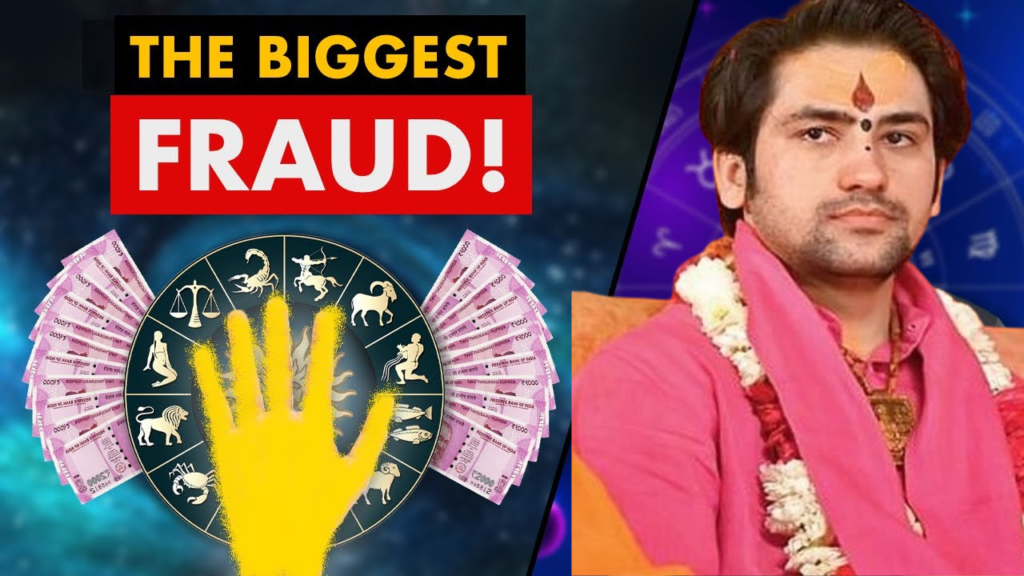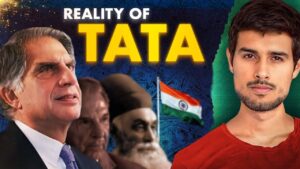Dark Reality of Astrology and Prediction Apps

Dark Reality of Astrology - Trending4Idia
Astrology has captivated the minds of millions for centuries, offering a sense of certainty in an uncertain world. Yet, despite its widespread popularity, it remains a controversial and scientifically unsupported practice. This blog post delves into the reasons why astrology continues to fool so many people, and why it’s time to take a critical look at its claims.
The Appeal of Astrology
Astrology offers comfort by providing predictions about the future, which can be particularly appealing in a world filled with uncertainty. Many people turn to horoscopes and astrologers to find answers to life’s most pressing questions, such as career success, love, and personal well-being. The idea that the positions of stars and planets at the time of our birth can influence our lives is a powerful one, but is there any truth to it?
The Misleading Nature of Astrological Predictions
One of the most compelling examples of astrology’s unreliability comes from the world of sports. Before a significant cricket match, several astrologers confidently predicted the outcome, claiming a guaranteed victory for the Indian team. However, the match turned out to be a one-sided affair, with the opposite result. This stark contrast between the prediction and the actual outcome highlights the flaws in astrological forecasts.
Astrologers often make broad, general statements that can apply to almost anyone. For example, they might predict that “something significant will happen in your 30s,” a statement so vague that it could mean anything from a career change to a personal milestone. This technique, known as cold reading, allows astrologers to appear accurate while saying very little of substance.
The Barnum Effect: A Psychological Explanation
The Barnum Effect, also known as the Forer Effect, explains why people often believe in astrological predictions. In a famous experiment, psychologist Bertram R. Forer gave his students a personality test and then provided them with identical personality sketches, claiming they were tailored to each individual. Despite the fact that every student received the same description, most rated the accuracy of the profile very highly. This phenomenon occurs because people tend to accept vague, general statements as personally meaningful, especially when they are positive or sympathetic.
Astrologers exploit this psychological tendency by offering statements that seem specific but are actually quite general. Phrases like “You have untapped potential” or “You value your independence” can resonate with almost anyone, leading people to believe that the astrologer has unique insight into their lives.
The Role of Observation and Fraud
Some astrologers enhance their credibility by using observational skills to make educated guesses about their clients. By paying attention to details like clothing, speech patterns, and body language, they can infer a lot about a person’s background, personality, and current concerns. This technique, combined with general statements, can create the illusion of accurate, personalized predictions.
In more extreme cases, astrologers may engage in outright fraud. Some may gather information about their clients in advance through various means, and then present this information as if it were revealed through astrological insight. This practice further undermines the legitimacy of astrology as a whole.
The Scientific Perspective
From a scientific standpoint, astrology lacks any empirical basis. Nobel laureate Dr. Venkatraman Ramakrishnan has stated that the movements of stars and planets have no measurable effect on human lives. Gravitational forces, which are often cited by astrologers, are simply too weak at the distances involved to have any significant impact on individuals. Moreover, scientific studies have consistently failed to find any correlation between astrological predictions and actual outcomes.
One study, conducted over several decades, tracked more than 2,000 children born at the same time and found no significant similarities in their personalities, careers, or life outcomes. This research further debunks the idea that the positions of celestial bodies at the time of birth can dictate the course of a person’s life.
The Need for Critical Thinking
Astrology persists because it plays on people’s fears and desires, offering a comforting sense of control in an unpredictable world. However, as this blog post has shown, astrology is built on a foundation of vague statements, psychological manipulation, and, in some cases, outright deception.
To move beyond the allure of astrology, it’s essential to embrace critical thinking and a healthy skepticism. By questioning the validity of astrological claims and seeking out evidence-based explanations for life’s challenges, we can avoid being misled by pseudoscience. Instead of looking to the stars for guidance, we should rely on reason, logic, and the wealth of knowledge provided by science to navigate the complexities of life.
- The Men Who Built India: The Untold Story of Tata
- The Kolkata Doctor Case: A Tale of Corruption, Violence, and Systemic Rot
- Kolkata Doctor Rape Case: Unveiling the Truth Behind the Tragic Incident
- The Kolkata Hospital Incident: Nirbhaya 2 Case
- India’s Ascending Steps: A Glimpse into Its Rapid Progress







1 thought on “Dark Reality of Astrology and Prediction Apps”